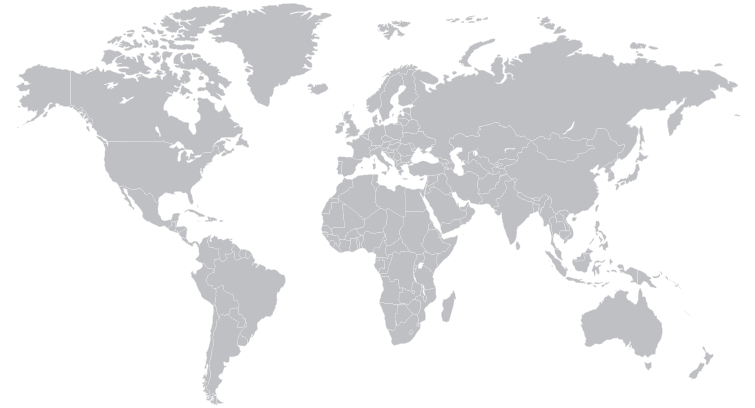Project
End Online Child Sexual Exploitation and Abuse (EndOCSEA@Europe)
About
Cybil code: G0582
Status: Finished
From: Jul 2018
To: Dec 2020
Implementors
Partners
Themes & Topics
Region
Countries
Contact
Ms Stephanie Burel
Summary
Short introduction on the project
General information
The ever increasing use of information and communication technologies whilst providing additional opportunities for children to exercise their rights also exposes them to greater risks of sexual exploitation and abuse facilitated by online technologies. Online Child Sexual Exploitation and Abuse (OCSEA) is a crime that has far reaching, long-term consequences for the victims, survivors and the wider community. Preventing and combatting this crime is a complex challenge that requires constant action by every member state of the Council of Europe.
To support member states to prevent and combat OCSEA, the Council of Europe has launched a new project “End Online Child Sexual Exploitation and Abuse @ Europe” (EndOCSEA@Europe). This project seeks to address the contextual challenges identified at pan-European and country levels by promoting, facilitating and supporting national efforts and actions to prevent and combat OCSEA.
- Pilot Countries: Armenia, Azerbaijan, Ukraine
- Target Groups: Parliamentarians, professionals, civil society and community participants (NGOs, parents, educators, child service providers) and social service providers.
Overall objective
To ensure that the rights of children are protected through effective multi-national, interdisciplinary and cross-sectorial cooperation and child-friendly measures to prevent and combat child sexual exploitation and abuse facilitated by ICTs (OCSEA) at pan-European level.
Specific objective
The project includes 3 mutually reinforcing components, each aimed at:
- setting up enabling environments for cross-sector, multidisciplinary collaboration at national and regional levels, through strengthening national governance structures and conducting situation analysis of OCSEA risks and responses in national and pan-European contexts;
- supporting legislative and procedural reforms, training and improved capacities of law enforcement officials, judiciary and prosecutors and promoting multi-disciplinary interagency cooperation for end-to-end support for victims;
- addressing societal capabilities with emphasis on awareness-raising, education of key targets groups and empowerment of children.
Objectives
The project will address the contextual challenges identified at pan-European and country level in beneficiary countries by promoting, facilitating and supporting national efforts and actions to prevent and combat child sexual exploitation and abuse facilitated by ICTs. Actions will support global efforts in this area, the implementation of relevant international and European standards, in particular the Council of Europe Convention on the Protection of Children against Sexual Exploitation and Sexual Abuse (Lanzarote Convention), and 8 of the capabilities identified in the WePROTECT Model National Response.
Outcome
Countries have robust national tools to prosecute perpetrators of violence and maintain and restore survivors rights; Communities protect children from violence and respond to the needs of survivors by:
1. Strengthened action to combat OCSEA through improved cooperation, policy and strategy development at national and regional level
1.1 Decision-makers are aware of OCSEA threats and the implications for the rule of law/Human rights and identify strategic priorities;
1.2 Interagency and multi-stakeholder cooperation, policies and strategies are developed, strengthened and promoted in focus countries, experiences are shared at pan-European level;
1.3 Policy dialogue and cooperation is strengthened at international and European level through collaboration within existing Council of Europe structures and cooperation between and with international and regional organisations.
2. Enhanced knowledge, skills and capacities for effective and successful investigation, prosecution and conviction of OCSEA
2.1 Law enforcement capacities to lead, support and coordinate OCSEA investigations are improved;
2.2 Criminal justice capabilities regarding OCSEA cases are improved;
2.3 Interagency cooperation for the protection of victims is improved by sensitizing relevant stakeholders and through sharing of promising practices.
3. Increased awareness and capacities to prevent OCSEA
3.1 Children, parents, professionals and parliamentarians have an improved understanding of OCSEA and actions taken to prevent and report OSCEA
3.2 Capacities of civil society organisations to prevent and combat OCSEA are strengthened.
The Cybil project repository is being continuously updated, and the information it contains is either publicly available, or consent for publication was given by the owner. Please contact the portal manager with any additional information or corrections. Whilst every reasonable effort is made to keep the content of this inventory accurate and up to date, no warranty or representation of any kind, express or implied, is made in relation to the accuracy, completeness or adequacy of the information contained in these pages.









